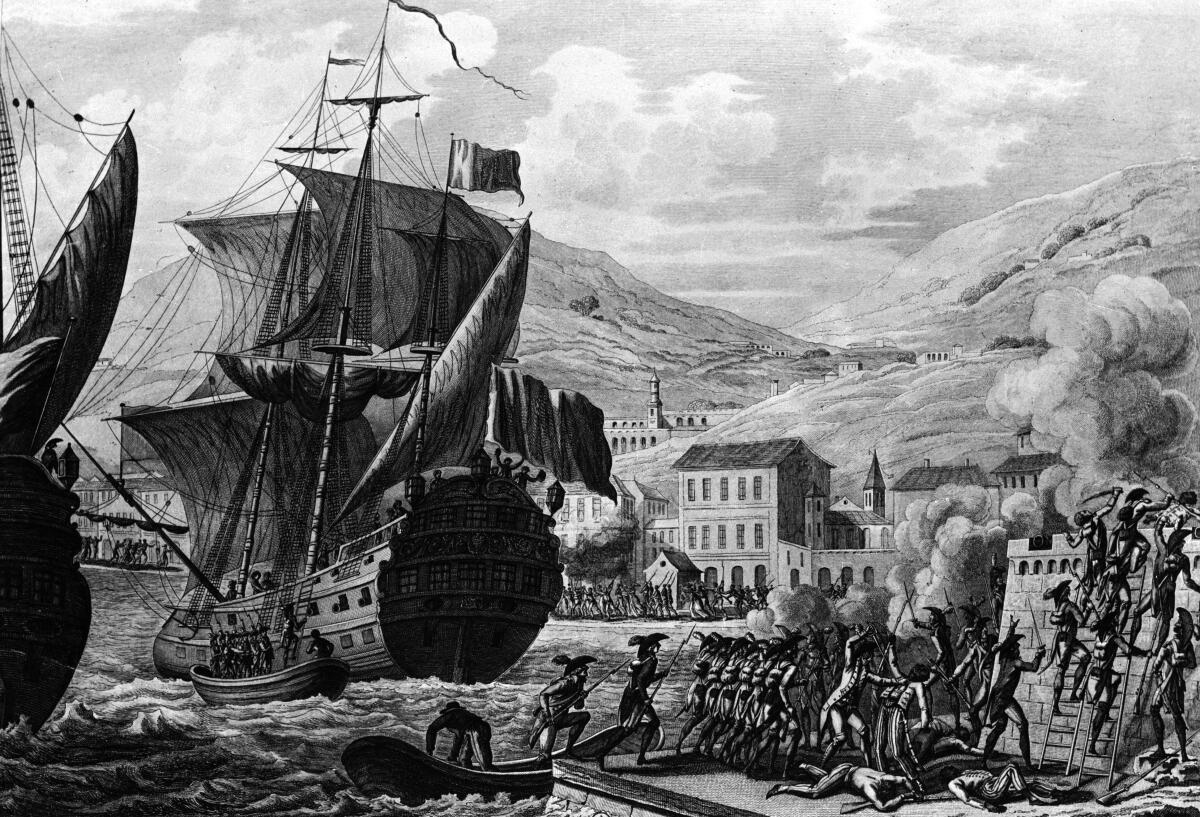Letters to the Editor: Haiti’s forgotten history in the U.S. shows why we need ethnic studies

- Share via
To the editor: The op-ed article by Howard French examining the historical relationship between the United States and Haiti was most interesting.
What was particularly notable for me was the fact that I was unaware of much of this history — the enslaved Haitians’ struggle for independence from major colonial powers, and the story behind the Louisiana Purchase, leading to an expansion of cotton cultivation and slavery in the United States.
While the harsh treatment recently of Haitian refugees by the U.S. Border Patrol was the counterpoint to the author’s historical perspective, I’m struck by the importance of students learning and understanding this history. Opponents of ethnic studies, are you listening?
Michael Sanders, Rossmoor
..
To the editor: French distorts history when he implies almost a one-to-one correspondence between the successful revolution of Haitian slaves and Napoleon’s decision in 1803 to sell the Louisiana territory to the United States.
It is true that other colonial powers in Europe joined forces with France in the hopes of reversing the Haitian revolution. The Haitians fought successfully for 12 years to preserve their country as well as their freedom from slavery.
Ironically, France was in a somewhat analogous position to that of Haiti. European monarchies were even more eager to erase the precedent of the overthrow of the French monarchy than they were to undo the precedent of a successful slave rebellion.
The nascent French Republic was in an almost continuous state of war with European powers, and Napoleon’s ending of the republic by declaring himself emperor failed to mollify his enemies, who still fought on to restore the hereditary French monarchy.
It is true that France’s loss of Haiti was a draining and expensive military defeat, but the primary reason for Napoleon’s willingness to sell the Louisiana territory was his desperate need for funds to defend France against his European neighbors.
Cyril Barnert, Los Angeles
More to Read
A cure for the common opinion
Get thought-provoking perspectives with our weekly newsletter.
You may occasionally receive promotional content from the Los Angeles Times.






